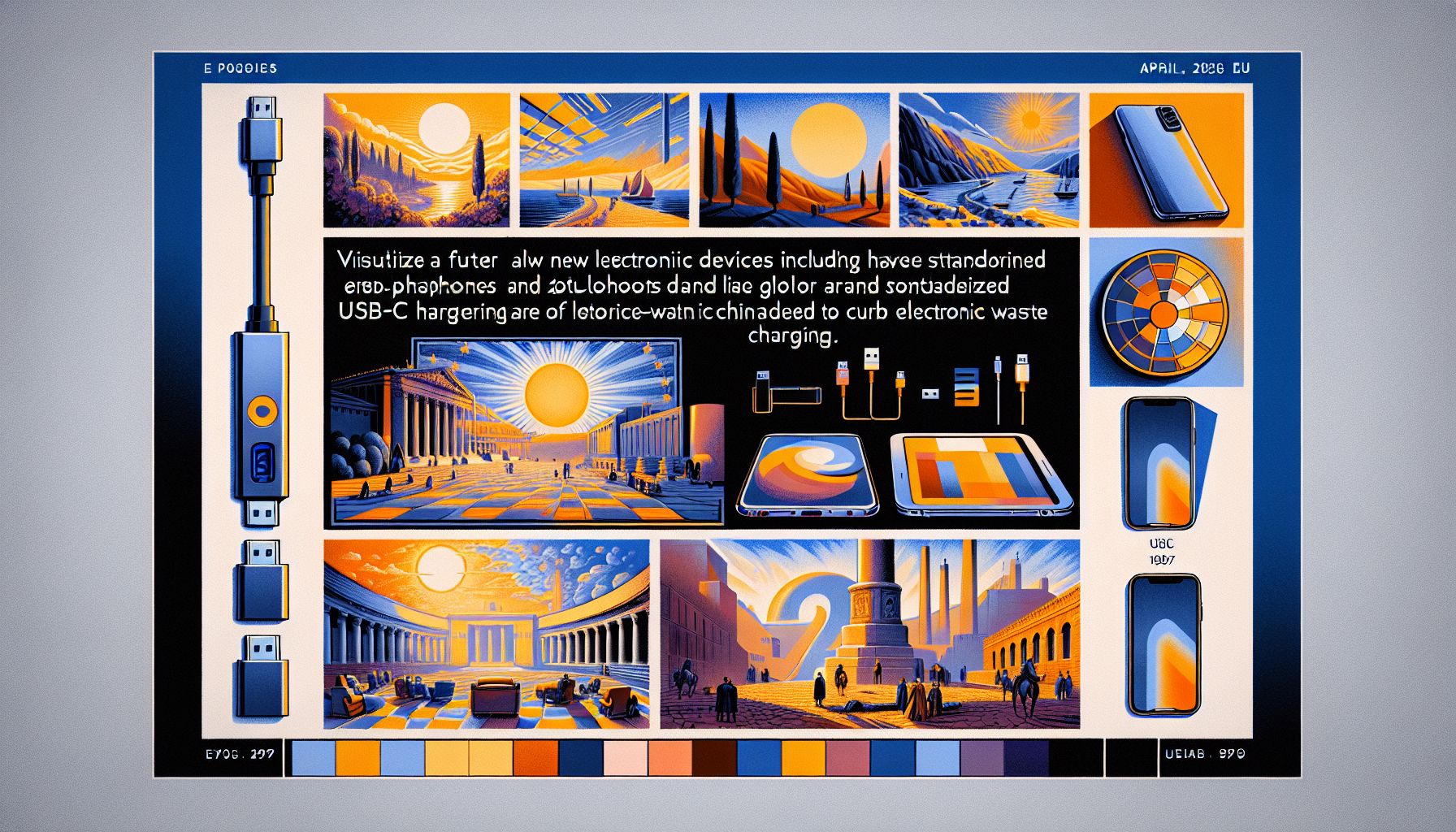EU Standardizes USB-C Charging to Reduce Waste

Brussels, Saturday, 28 December 2024.
The EU mandates USB-C for all new electronic devices to curb electronic waste and simplify charging, affecting products like smartphones and laptops by April 2026.
Implementation Timeline and Device Coverage
Starting December 28, 2024, the European Union’s universal charger mandate requires all new mobile phones, tablets, digital cameras, headphones, videogame consoles, portable speakers, e-readers, keyboards, mice, and portable navigation systems to feature USB-C charging ports [1]. The regulation will extend to laptops by April 28, 2026 [1]. This comprehensive approach aims to tackle the approximately 11,000 tonnes of e-waste generated annually from discarded and unused chargers [1].
Economic and Environmental Benefits
The initiative is expected to generate significant cost savings for European consumers, with projections indicating approximately €250 million in annual savings from reduced charger purchases [1]. Beyond financial benefits, the standardization ensures charging speed consistency across compatible devices [1]. The mandate represents a crucial step in the EU’s broader sustainability agenda, particularly given that current waste recycling rates stand at just 44% as of 2022 [3].
Industry Adaptation and Market Impact
Major manufacturers are already adapting to the new requirements, with Apple making significant changes to its product lineup. The tech giant is discontinuing its iPhone SE 3, iPhone 14, and iPhone 14 Plus models in the EU [2][4], as these devices still use the Lightning port. Instead of retrofitting these models with USB-C ports, Apple has opted to focus on newer USB-C compatible devices [5]. A new iPhone SE with USB-C compatibility is anticipated for spring 2025 [5].
Future Implications and Consumer Choice
The regulation empowers consumers by allowing them to purchase new devices without bundled chargers [6], promoting the reuse of existing compatible chargers. Anna Cavazzini, chair of the European Parliament’s Committee on the Internal Market and Consumer Protection, has emphasized both the environmental and economic benefits of these changes [6]. This standardization represents a significant shift towards unified charging solutions across the EU, potentially influencing global manufacturing standards [1].
Bronnen
- commission.europa.eu
- maxandfix.com
- www.eea.europa.eu
- zeerawireless.com
- www.macreview.com
- greekcitytimes.com

